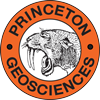FRS 124, The Everglades Today and Tomorrow: Global Change and the Impact of Human Activities on the Biosphere
Anne M. Morel-Kraepiel
Our lives, and those of our children, will be affected by the impact of human activities on the planet in ways that we are just beginning to understand. The Everglades, a unique “River of Grass” in South Florida, has long been emblematic of our complicated relationship with the environment. Only a fraction of the original Everglades ecosystem remains, as urban and agricultural activities in South Florida have encroached on existing wetlands, competing for the available water and compromising water quality. Yet the people of South Florida are dependent upon the fragile ecosystem, which provides water storage and filters out contaminants. In this seminar, we will use the Everglades as a case study for exploring this struggle between disturbance and dependence—a struggle that plays out in habitats across the globe.



